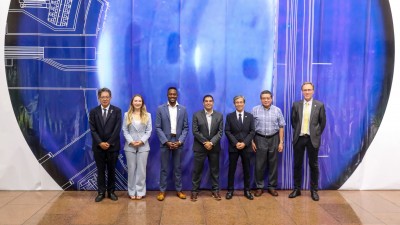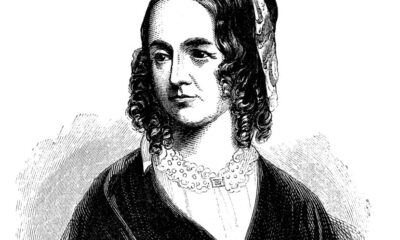Science
American Technology Enhances Measurement in World’s Largest Fusion Reactor

The world’s largest superconducting fusion machine, the **JT-60SA**, will utilize advanced measurement technology from the **Princeton Plasma Physics Laboratory** (PPPL) in the United States. This collaboration marks a significant milestone as it is one of the initial contributions to the fusion project from an organization outside of Japan and Europe.
The JT-60SA, located in **Naka, Japan**, is designed to study the behavior of plasma, the hot, ionized gas that is crucial for nuclear fusion. The technology provided by PPPL will enhance the machine’s capabilities to analyze plasma conditions with unprecedented precision. This is essential for advancing research in sustainable fusion energy, which has the potential to provide a near-limitless energy source.
PPPL’s involvement in this project highlights the growing international collaboration in fusion research. The laboratory’s expertise in plasma physics and measurement systems will assist in understanding the complex dynamics of fusion reactions. This partnership signifies a step forward in the global effort to achieve practical nuclear fusion, a goal that has long eluded scientists.
The collaboration was formalized during a recent meeting, where representatives from both institutions discussed the technological requirements and integration processes. The American technology will play a vital role in the JT-60SA’s operations, allowing researchers to gather real-time data on plasma performance and stability.
As fusion research gains momentum worldwide, projects like the JT-60SA are becoming increasingly important. The machine is expected to contribute valuable insights into the conditions necessary for sustaining fusion reactions, paving the way for future developments in the field. The **European Union**, alongside Japan, has invested heavily in this initiative, underscoring the importance of international cooperation in addressing global energy challenges.
In addition to its measurement technology, PPPL will also share its extensive knowledge in plasma diagnostics. This expertise is crucial as researchers aim to refine techniques that could eventually lead to the development of fusion reactors capable of producing energy on a commercial scale.
The success of the JT-60SA could have far-reaching implications for the energy sector. If successful, nuclear fusion could offer a cleaner, safer alternative to fossil fuels, significantly reducing greenhouse gas emissions. The implications for energy policy and climate change mitigation are profound.
As the project progresses, researchers at PPPL and the JT-60SA will work closely to ensure that the integration of technologies is seamless. This collaboration not only represents a technological exchange but also fosters a spirit of unity in the pursuit of energy solutions that could benefit the entire planet.
With the initial phase of the JT-60SA operational, the next steps will involve extensive testing and evaluation of the new measurement systems. The outcomes of this research are anticipated to influence future fusion projects globally, setting the stage for a new era in energy production.
As the world faces increasing energy demands and environmental challenges, the advances made through initiatives like the JT-60SA highlight the critical role of international partnerships in achieving a sustainable energy future.
-

 Technology4 months ago
Technology4 months agoDiscover the Top 10 Calorie Counting Apps of 2025
-

 Health2 months ago
Health2 months agoBella Hadid Shares Health Update After Treatment for Lyme Disease
-

 Health3 months ago
Health3 months agoErin Bates Shares Recovery Update Following Sepsis Complications
-

 Technology4 weeks ago
Technology4 weeks agoDiscover 2025’s Top GPUs for Exceptional 4K Gaming Performance
-

 Technology2 months ago
Technology2 months agoElectric Moto Influencer Surronster Arrested in Tijuana
-

 Technology4 months ago
Technology4 months agoDiscover How to Reverse Image Search Using ChatGPT Effortlessly
-

 Technology4 months ago
Technology4 months agoMeta Initiates $60B AI Data Center Expansion, Starting in Ohio
-

 Technology4 months ago
Technology4 months agoRecovering a Suspended TikTok Account: A Step-by-Step Guide
-

 Health4 months ago
Health4 months agoTested: Rab Firewall Mountain Jacket Survives Harsh Conditions
-

 Lifestyle4 months ago
Lifestyle4 months agoBelton Family Reunites After Daughter Survives Hill Country Floods
-

 Technology3 months ago
Technology3 months agoUncovering the Top Five Most Challenging Motorcycles to Ride
-

 Technology4 months ago
Technology4 months agoHarmonic Launches AI Chatbot App to Transform Mathematical Reasoning




















